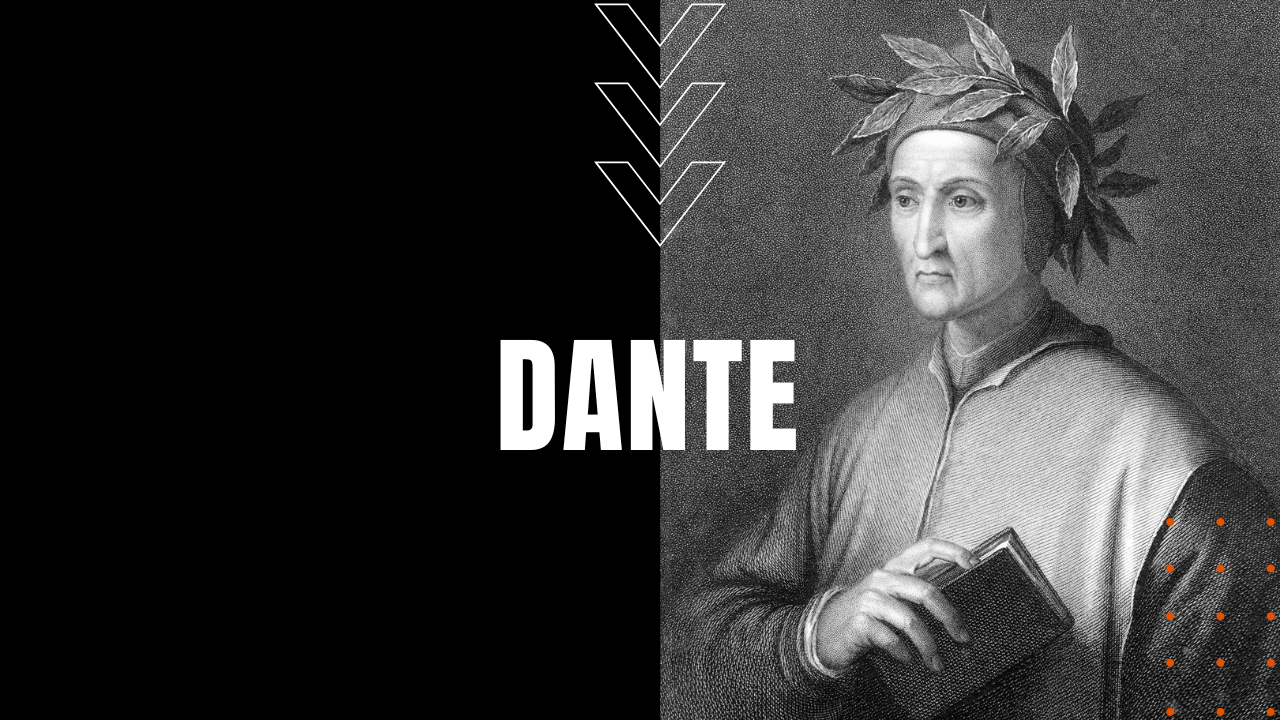Dante

Born in 1265 Florence Italy, into a family heavily mired in the fractious Florentine political scene of the times, Dante Alighieri was slated to marry Gemma Donati in an arranged marriage when he was just 12 years old, although his true love—albeit unrequited—was Beatrice Portinari, who died tragically five years after Dante’s 1285 marriage.
Early Works
Publishing Vita Nuova or The New Life as a poetic tribute to his tragic love for Beatrice, his book of verse is notable in the fact that he wrote in the Italian rather than the Latin. Immersing himself in the study of philosophy and the seemingly endless conflicts in Florentine politics between those supporting the papacy verses those supporting the monarchy, Dante was forced into exile when he fell out of favor with the Black Guelphs—many in that faction who would find a place in Dante’s most famous work, The Divine Comedy.
Dante in Bologna
Penning his Latin treatise De Vulgari Eloquentia or the Eloquent Vernacular while living in Bologna, Dante encouraged Italian authors to write in their native language in order to establish Italian in high brow literature, in further attempt, among other things, as a means of unifying the politically-divided territories during the early Italian Renaissance. Exiled yet again in March of 1306, when Bologna expelled all its Florentine residents, Dante moved to Padua, where he wrote his famous three-book work on the monarchy, De Monarchia, after Henry the 7th was crowned Holy Roman Emperor in 1312, in which Dante proclaimed that the authority of the king was not dependent upon the pope’s approval, but rather descends upon a king directly from God.
Banned in Florence
His Divine Right of Kings assertion would find De Monarchia permanently banned from Florentine book shelves. Completing his master work in Ravenna, shortly before his death in 1321, The Divine Comedy would prove to be his most lasting work of literature, even to this day. Written in the first person, The Divine Comedy is an allegory of human life as Dante travels through the Christian afterlife, warning readers to steer clear of the corruptions of human society, in exchange for a chosen path of righteousness.
A Renaissance Classic
Composed in 100 cantos and written in a poetic measure known as terza rima, his journey through hell and purgatory as described in his Inferno and Purgatorio, employs the Roman poet Virgil as his guide, while many characters responsible for his exile from Florence find themselves suffering tortuous existences during their eternal residence in hell and purgatory, while his guide through heaven or Paradiso is none other than his lost love Beatrice, who leads him through the nine levels of the heavens, where he learns to reject all things within the earthly realm of man in exchange for the heavily paradise that awaits all Christian believers, making Dante Alighieri, a leading voice during the Italian Renaissance.
